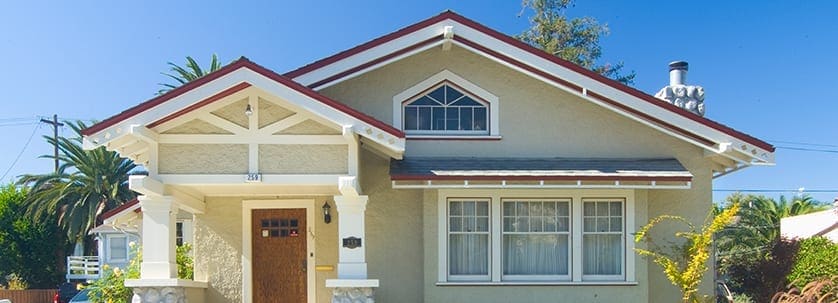What’s your biggest retirement worry? If you’re thinking “running out of money,” you’re not alone. According to a recent study, nearly half of Americans (49%) cited depleting funds as their top retirement concern1. Fortunately, for homeowners age 62 and older, there is a powerful tool that could potentially help alleviate this stress—home equity.
A Home Equity Conversion Mortgage (HECM), also known as a reverse mortgage, is an FHA-insured program designed for older adult homeowners to tap into their home equity and get cash to use as they wish. With no monthly payments required on a reverse mortgage*, you continue to own your home and can choose how you’d like to receive and use your funds. You also have the flexibility to make payments if you choose to do so; you can pay as little or as much as you want, as often as you’d like. But like all financial decisions, opting for a reverse mortgage must be the right choice for you, and it’s important to get all of your questions and concerns addressed in the process.
When it comes to applying for a reverse mortgage, there are a lot of questions around benefits. Do reverse mortgage proceeds affect the benefits you can receive from Social Security? Will you still be eligible to collect? While there are a lot of misconceptions and myths surrounding reverse mortgages, here are the facts you need to know about reverse mortgages and Social Security.
According to the Social Security Administration, 97% of Americans aged 60 to 89 either receive Social Security benefits or plan to receive them2. And for good reason—Social Security provides a foundation of retirement protection for Americans of all earning levels. Since Social Security benefits are based on age and are not means-tested, they are available to anyone regardless of their income or financial situation. So, what does this mean for reverse mortgages? Simply stated, having a reverse mortgage or the money received from one does not have any bearing on your Social Security benefits**. You remain eligible, whether or not you have a reverse mortgage.
Social Security isn’t typically affected by a reverse mortgage loan because it is a government-based program, primarily based on contributions you and/or your spouse made during your years in the workforce. What’s more, opting for a reverse mortgage could allow you to defer your Social Security benefits and maximize payments later on.
Deferring Social Security
Determining when to start receiving Social Security benefits is undoubtedly one of the most important decisions you’ll make in retirement. While one school of thought is to start collecting as soon as possible, it’s important to note the clear benefits to deferring Social Security as well. By waiting to receive benefits until you reach full retirement age, your monthly benefits continue to increase.
Consider this – according to the Social Security Administration, you’ll receive 100% of your designated monthly benefits if you wait to start receiving until you’ve reached the full retirement age of 66. However, if you wait until age 67, you’ll receive 108% of the monthly benefits since you delayed them by 12 months. What’s more, if you wait until the maximum age of 70 to start receiving, you’ll collect 132% of the monthly benefits for delaying them by 48 months.
So, what does this actually amount to? While the average person opting to begin receiving benefits at the minimum age of 62 could receive about $1,350 per month, delaying Social Security until the maximum age of 70 could allow them to receive monthly benefits in the ballpark of $2,376 – a sizeable difference3.
If you’re planning to delay your Social Security benefits, but could use some additional cash now, a reverse mortgage could be just the solution. By tapping into the equity in your home and using it strategically to make ends meet, you’ll be able to delay Social Security to maximize your benefits in the long run.
By improving your income and monthly cash flow with a reverse mortgage, you can alleviate the financial strain of living on a fixed retirement income without affecting your eligibility for Social Security benefits. With this in mind, it’s no surprise that more than half a million Americans have already made a reverse mortgage part of their financial plan4. Want to see if it’s right for you?
See how much you can qualify for with our free quote calculator and for more information, contact the Longbridge team today.
- https://www.aarp.org/retirement/planning-for-retirement/info-2019/retirees-fear-losing-money.html
- https://www.cbpp.org/research/social-security/policy-basics-top-ten-facts-about-social-security#:~:text=In%20fact%2C%2097%20percent%20of,Security%20brings%20many%20important%20advantages.
- https://reversemortgagevalue.com/getting-reverse-mortgage-affect-social-security-benefits/
- Source: 2010 NRMLA study.
* Real estate taxes, homeowners insurance, and property maintenance required.
** Consult a financial advisor and appropriate government agencies for any effect on taxes or government benefits.
